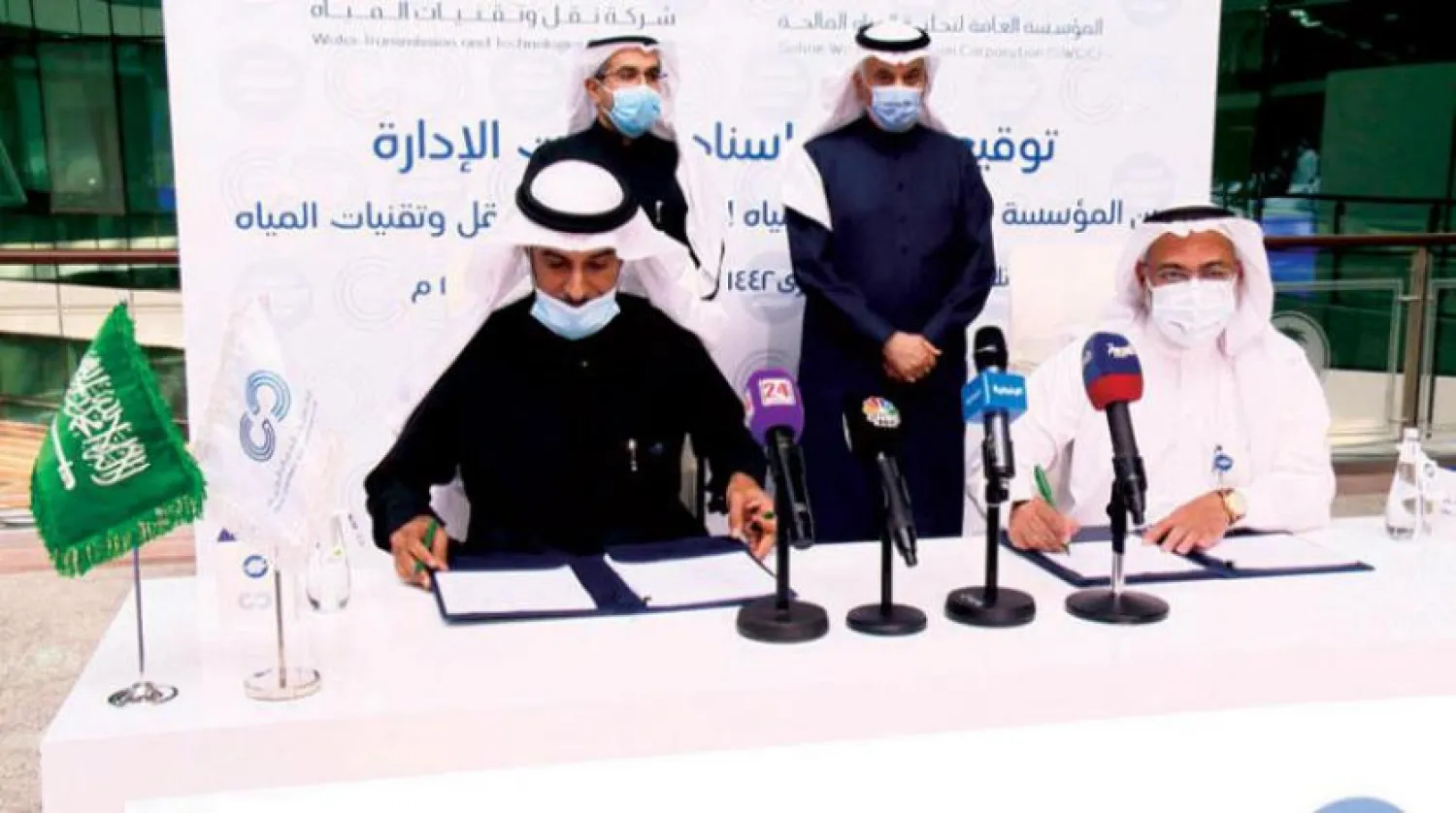Saudi Arabia’s Saline Water Conversion Corporation (SWCC) and the Water Transmission and Technologies Co. (WTTCO) signed on Tuesday a cooperation agreement to outsource management services.
Minister of Environment, Water and Agriculture Abdurahman Al-Fadhli, who is also chairman of the board of directors of the SWCC, and governor of the SWCC Abdullah Al-Abdulkarim attended the signing ceremony.
Speaking at the ceremony, Abdulkarim said the corporation will focus on six platforms that include a commitment to safety and sustainability in innovation and engineering development.
Abdullah Al Zowaid, SWCC Deputy Governor Operations and Maintenance, told Asharq Al-Awsat that upon the completion of projects, pumping capacity is expected to reach 17 million cubic meters daily.
The agreement calls for a smooth and gradual transition of the management, operation and maintenance of water transmission systems to the WTTCO, enabling it to sign contracts with partners and work on a commercial basis, it was announced in a press statement.
More so, the deal will boost the efficiency and organization of the water sector, as well as develop the Kingdom’s economy by adding more than SR60 billion ($16 billion) worth of investment opportunities in water transport and storage systems by involving the private sector in funding future projects.
Under the agreement, the SWCC will enable the WTTCO to use its transport systems to perform assigned services and allow the employees to participate in related decision making. In addition, the WTTCO will supervise the operation, maintenance and assignment of operations, and follow up on the progress of project implementation.
In 2021, the WTTCO will complete its commercial activities, through activating systems and operations, governance of procedures, preparing support services, as well as signing commercial deals, and taking delivery of operating assets.
Meanwhile, the company’s plan for 2022 includes improving and upgrading operational efficiency and slashing capital costs.
The Saudi Cabinet had agreed in September 2019 to establish the WTTCO as a state-owned company, which will take over assets from the SWCC and will lead the development of the Kingdom’s huge pipelines.









